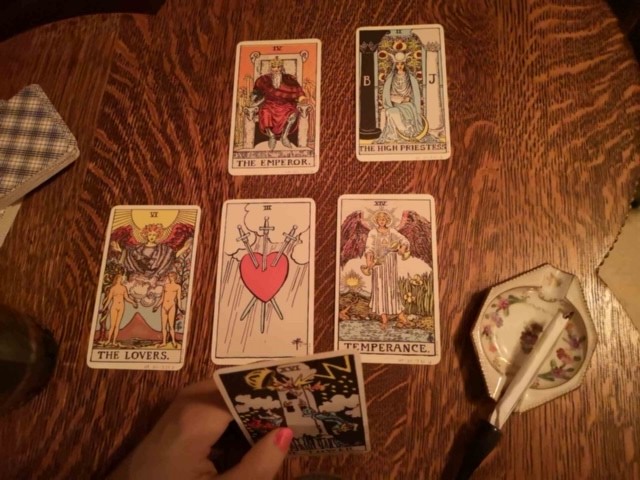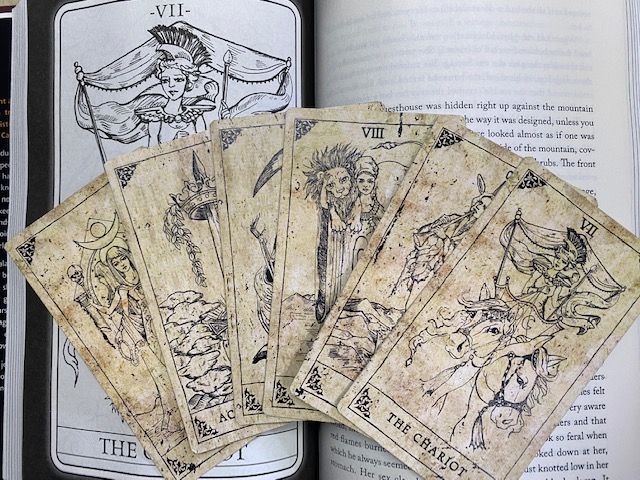The world of tarot cards is as enchanting as it is enigmatic. For centuries, these mystical cards have captivated the human imagination, serving as a source of guidance, introspection, and intrigue. Yet, amidst the allure and fascination, myths and misconceptions have woven themselves into the tapestry of tarot. In this article, we’ll embark on a journey to separate fact from fiction, unveiling the truth behind common tarot card myths and misconceptions.
Myth 1: Tarot Cards Predict the Future with Absolute Certainty
One of the most pervasive myths about tarot cards is that they possess the power to predict the future with unwavering certainty. In reality, tarot cards are more like a mirror reflecting the energies and possibilities surrounding an individual. They offer insights into the current situation and potential outcomes, but the future remains unwritten and is subject to change based on one’s choices and actions.
Myth 2: Tarot Cards Are Linked to Dark Magic
The association of tarot cards with dark magic or malevolent forces is a common misconception. Tarot is, at its core, a tool for self-discovery and guidance. The cards themselves are not inherently good or evil. It is the intent and interpretation of the reader that determine the nature of the reading. Many practitioners use tarot as a means of promoting personal growth, clarity, and positive transformation.
Myth 3: Only Psychics Can Read Tarot Cards
Contrary to popular belief, you don’t need to possess psychic abilities to read tarot cards effectively. While some readers may have intuitive gifts that enhance their interpretations, tarot is a skill that can be learned and honed over time. It involves a deep understanding of symbolism, archetypes, and the ability to connect with one’s intuition. With practice and dedication, anyone can become a proficient tarot card reader.
Myth 4: Tarot Cards Are Linked to a Specific Religion or Belief System
Tarot cards are often mistakenly associated with a particular religion or belief system, such as Wicca or the occult. In reality, tarot is a versatile tool that can be integrated into various belief systems or used independently. People of diverse spiritual backgrounds, including Christians, Buddhists, and agnostics, have found value in tarot readings as a means of gaining insight and clarity.
Myth 5: Tarot Readings Are Always Accurate
While tarot readings can provide valuable guidance and insights, they are not infallible. The accuracy of a tarot reading depends on several factors, including the reader’s skill, the quality of the question asked, and the openness of the individual receiving the reading. Tarot cards offer possibilities and potential outcomes, but they are not a guarantee of specific events.
Myth 6: Tarot Cards Can Bring Harm
Some people fear that engaging with tarot cards can bring harm or negative energy into their lives. This misconception arises from a lack of understanding. Tarot readings are meant to be empowering and enlightening experiences. They encourage self-reflection, personal growth, and a deeper understanding of one’s path. When approached with respect and a positive mindset, tarot cards can be a source of inspiration and clarity.
Myth 7: Tarot Cards Can Only Answer Yes or No Questions
Another common myth is that tarot cards can only provide yes or no answers. In reality, tarot readings are much more nuanced. Tarot cards offer a wide range of insights, from exploring complex situations to providing guidance on personal development. Skilled readers can delve into the subtleties of a situation, offering a holistic view rather than simplistic binary responses.
Myth 8: Tarot Cards Are a Form of Entertainment Only
While tarot readings can certainly be entertaining, they go beyond mere amusement. Many individuals turn to tarot for serious introspection and guidance during challenging times. Tarot cards have been instrumental in helping people make informed decisions, gain clarity on complex issues, and navigate life’s twists and turns.

Myth 9: Tarot Cards Are All About Luck
Some believe that tarot readings are reliant solely on luck or chance. In truth, tarot readings are a blend of intuition, symbolism, and personal interpretation. Skilled readers draw upon their knowledge and connection to the cards to provide meaningful insights. It’s not about luck; it’s about tapping into the collective wisdom of the tarot’s symbolism.
Myth 10: Tarot Cards Have a Standard Meaning for Everyone
Each tarot card holds a multitude of meanings, and these meanings can vary depending on the context of a reading and the reader’s intuition. There is no one-size-fits-all interpretation for tarot cards. The cards speak differently to each individual, making each reading a unique and personal experience.
In conclusion, the world of tarot cards is shrouded in myths and misconceptions. While these myths may have perpetuated over time, it’s crucial to approach tarot with an open mind and a willingness to explore its true nature. Tarot is a tool for self-discovery, guidance, and personal growth, and it holds the power to provide valuable insights when used with respect and intention.
So, the next time you encounter a tarot deck, remember that it’s not a window into the future or a portal to dark forces. Instead, it’s a mirror reflecting the wisdom of the ages, waiting to offer guidance on your journey of self-discovery.









